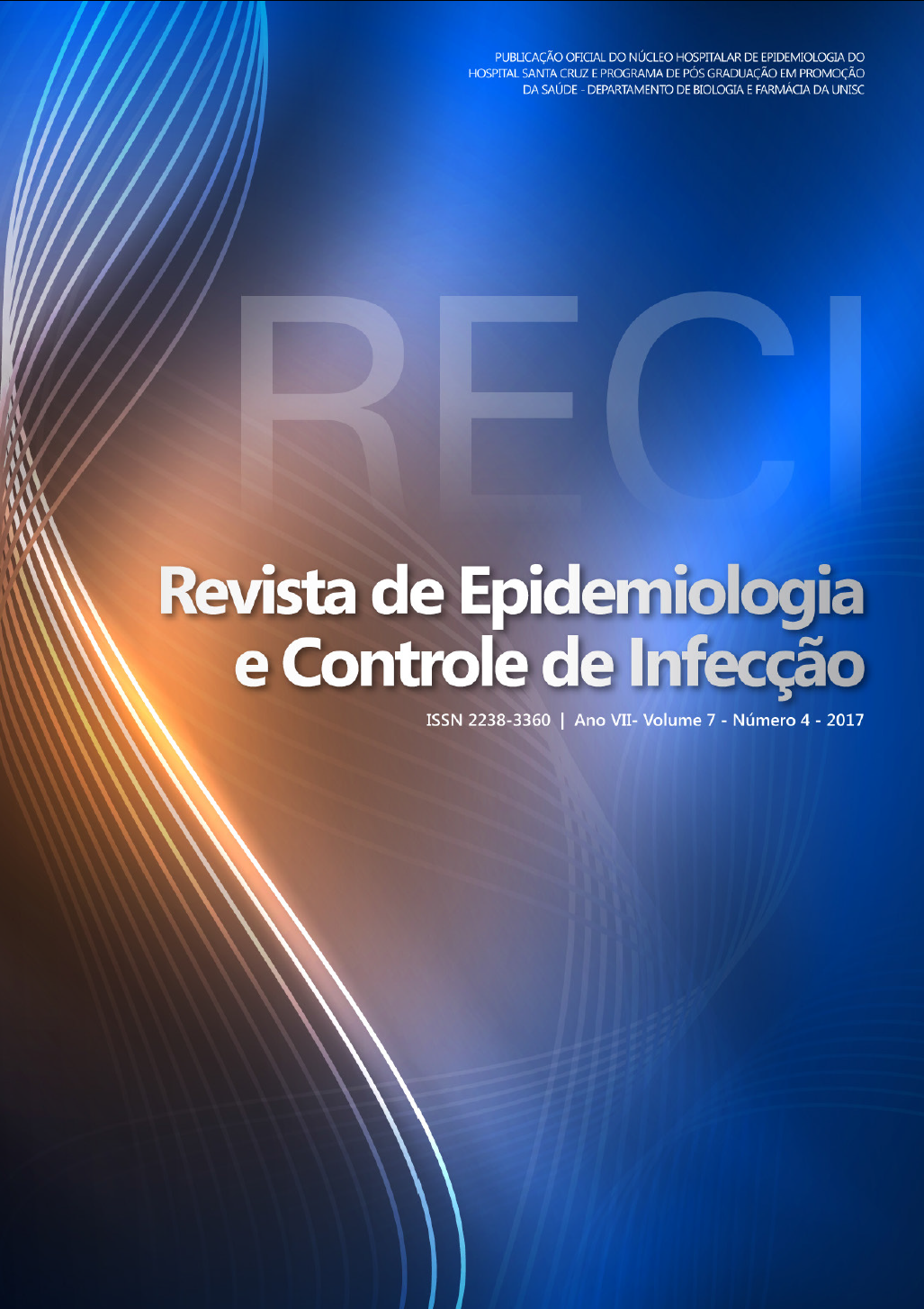Evaluación de la incidencia de infestación por triatomineos en ambientes domiciliarios del municipio de Aurora–CE no período de 2012 hasta 2015
DOI:
https://doi.org/10.17058/reci.v7i4.9101Resumen
Justificación y objetivo: Triatominos son hospedadores invertebrados del Trypanosoma cruzi, el agente etiológico de la enfermedad de Chagas, parasitosis que afecta a los mamíferos, incluyendo los humanos. Dado que estos insectos se consideran fuentes naturales de infección, este estudio tuvo como objetivo evaluar la incidencia de la infestación por triatominos en entorno doméstico de la ciudad de Aurora, CE, de 2012 hasta 2015. Métodos: Los datos secundarios sobre capturas de especies y análisis de infección por T. cruzi se obtuvieron del Laboratorio de Entomología Médica Zolide Mota Ribeiro en Juazeiro do Norte-CE, del Programa de Control de la Enfermedad de Chagas. Resultados: Se capturaron 1.176 ejemplares de insectos, de los cuales se encuentra la mayoría en el peridomicílio (85,71%) y identificados como pertenecientes a las especies Triatoma pseudomaculata (81,38%), T. brasiliensis (15,73%), Rhodnius nasutus (1,45%), Panstrongylus lutzi (1,28%), y P. megistus (0,17%). De los triatominos analizados, la mayoría eran ninfas (64,80%), seguido por machos adultos (17,52%) y 0,34% estaban infectados con Trypanosoma cruzi. Estos insectos infectados pertenecían a las especies T. pseudomaculata (0,42%) y T. brasiliensis (0,55%), siendo el 80% ninfas. Conclusión: Es significativo el índice de infestación por triatominos dentro de las casas y especialmente en el peridomicílio, lo que representa un riesgo para la salud de la población de Aurora, CE, ya que fueron diagnosticados triatominos parasitados por Trypanosoma cruzi. Además, las especies más prevalentes en este estudio se encuentran entre las principales especies de vectores de la enfermedad de Chagas en Cariri, Ceará y Brasil.Descargas
Descargas
Publicado
Número
Sección
Licencia
The author must state that the paper is original (has not been published previously), not infringing any copyright or other ownership right involving third parties. Once the paper is submitted, the Journal reserves the right to make normative changes, such as spelling and grammar, in order to maintain the language standard, but respecting the author’s style. The published papers become ownership of RECI, considering that all the opinions expressed by the authors are their responsibility. Because we are an open access journal, we allow free use of articles in educational and scientific applications provided the source is cited under the Creative Commons CC-BY license.


